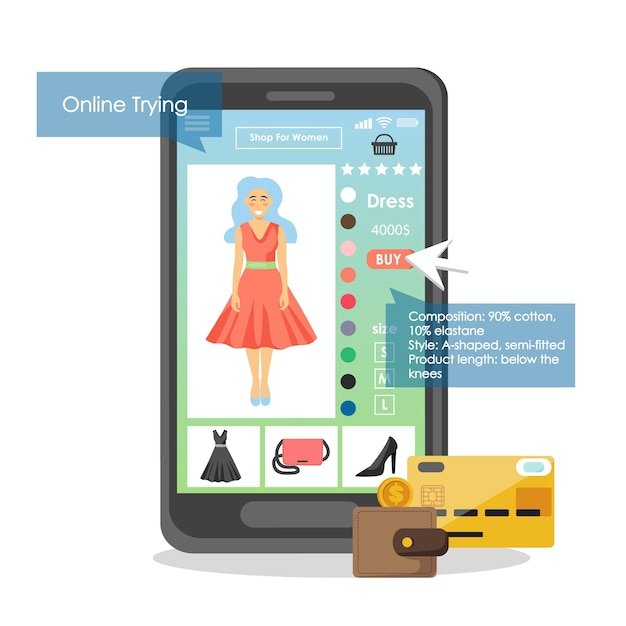Maximize Holiday Savings: Time-Sensitive Buying Guide Strategies

Buying Guides: Time-Sensitive Strategies for Maximizing Your Savings This Holiday Season involve leveraging limited-time offers, planning purchases around key shopping dates, and utilizing price comparison tools to secure the best deals.
Navigating the holiday season can be both exciting and financially challenging. With strategic planning and a keen eye for time-sensitive opportunities, Buying Guides: Time-Sensitive Strategies for Maximizing Your Savings This Holiday Season can help you make the most of your budget and enjoy the festivities without breaking the bank.
Understanding the Holiday Shopping Landscape
The holiday season is marked by a flurry of sales events and promotions. Before diving in, it’s crucial to understand how these events unfold so you can strategically plan your purchases to obtain the best prices on your desired items.
Different times of the year offer distinct advantages, and knowing when to strike can lead to significant savings.
Key Holiday Shopping Dates
Several dates stand out during the holiday shopping season, each offering unique deals and discounts. Understanding these dates and their typical offerings can help you prioritize your shopping timeline.
- Black Friday: The day after Thanksgiving, known for significant discounts on electronics, appliances, and various other goods.
- Cyber Monday: The Monday after Thanksgiving, primarily focused on online deals, often including discounts on tech products and clothing.
- Green Monday: Usually the second Monday in December, retailers offer last-minute deals to capture shoppers before Christmas.
- Super Saturday: The Saturday before Christmas, offering last-minute shopping opportunities with competitive discounts.

These dates can be crucial for those looking to get the best prices on specific items. However, it’s essential to compare deals and be mindful of potential impulse purchases.
Planning Your Purchases: A Proactive Approach
Effective holiday shopping begins well before the sales events. A thoughtful plan helps you identify your needs, set a budget, and prioritize your purchases, ensuring you aren’t swayed by random discounts.
By taking a strategic approach, you can avoid overspending and make the most of the available sales.
Creating a Holiday Budget
Setting a budget is vital for managing your holiday spending. Determine how much you can realistically afford to spend and allocate funds to different categories such as gifts, decorations, and entertainment.
Consider all potential expenses, including shipping costs and gift-wrapping fees.
Making a Gift List
Prepare a detailed gift list with the names of recipients and potential gift ideas. This helps you stay focused while shopping and reduces the likelihood of impulse buys.
- Research potential gifts: Explore various options and compare prices beforehand.
- Note preferred brands or styles: This ensures you buy something the recipient will truly appreciate.
- Set a spending limit per person: This keeps your overall budget in check.
A well-prepared gift list serves as your shopping guide, keeping purchases intentional and budget-friendly.
Leveraging Price Comparison Tools and Apps
In today’s digital age, numerous tools and apps are available to help you compare prices and find the best deals. These resources can be invaluable in identifying the lowest prices on your desired items, saving you both time and money.
Harnessing these digital tools can turn you into a savvy shopper, consistently finding the best offers available.

Popular Price Comparison Websites
Several websites specialize in comparing prices across different retailers, providing a comprehensive view of where to find the best deals.
- Google Shopping: Allows you to compare prices across various online retailers and filter results based on price, brand, and features.
- PriceGrabber: Provides price comparisons for a wide range of products, including electronics, appliances, and home goods.
- Shopzilla: Offers price comparisons and product reviews to help you make informed purchasing decisions.
These websites offer different features, so it’s beneficial to explore a few to find one that suits your shopping style and needs.
Utilizing Coupons and Promo Codes
Coupons and promo codes are effective ways to reduce the cost of your holiday purchases. Many retailers offer discounts through online coupons, email subscriptions, and loyalty programs.
Finding and using these codes can significantly lower your expenses.
Finding Online Coupons
Numerous websites compile online coupons and promo codes from various retailers, making it easy to find discounts for your desired purchases.
Subscribing to Email Newsletters
Many retailers offer exclusive coupons and promo codes to email subscribers. Signing up for newsletters can provide access to special deals not available elsewhere.
- Create a separate email account: This helps keep promotional emails separate from your primary inbox.
- Check emails regularly: Be vigilant about checking for new deals and limited-time offers.
- Unsubscribe after the holidays: If desired, unsubscribe from newsletters once the shopping season ends.
Staying informed through email subscriptions can uncover significant savings opportunities.
Taking Advantage of Loyalty Programs and Rewards
Loyalty programs and rewards systems offer another avenue for maximizing your savings during the holiday season. Many retailers provide perks to loyal customers, such as exclusive discounts, free shipping, and cashback rewards.
Participating in these programs enhances your overall savings potential.
Benefits of Loyalty Programs
Loyalty programs provide various benefits that can help you save money and enhance your shopping experience.
These benefits can range from discounts on purchases to free expedited shipping.
Using Credit Card Rewards
If you use a credit card, explore opportunities to earn rewards on your holiday purchases. Many credit cards offer cashback, points, or miles that can be redeemed for discounts or other benefits.
- Choose the right card: Select a credit card that offers rewards that align with your spending habits.
- Redeem rewards strategically: Use your rewards to offset holiday expenses, such as gifts or travel.
- Pay off your balance: Avoid accruing interest charges, which can negate the benefits of your rewards.
Using credit card rewards can be a smart way to save money while making necessary holiday purchases.
Staying Updated on Deals and Flash Sales
The holiday shopping season is dynamic, with new deals and flash sales appearing frequently. Staying informed and responsive can help you capitalize on fleeting opportunities to save money.
Keeping a vigilant watch can reveal unexpected deals and special offers.
Following Retailers on Social Media
Many retailers announce flash sales and special promotions on their social media channels. Following your favorite stores on platforms like Facebook, Instagram, and Twitter can keep you updated on the latest deals.
This ensures you don’t miss out on limited-time offers.
Setting Up Deal Alerts
Use deal alert services to receive notifications when specific products or categories go on sale. This can save you time and effort by delivering relevant deals directly to your inbox or phone.
- Customize your alerts: Specify the products or categories you’re interested in buying.
- Check alerts regularly: Be ready to act quickly when a favorable deal arises.
- Consider browser extensions: Some extensions automatically find and apply coupons while you browse online stores.
Deal alerts keep you informed of relevant opportunities, ensuring you don’t miss valuable savings.
| Key Point | Brief Description |
|---|---|
| 🗓️ Holiday Shopping Dates | Leverage Black Friday, Cyber Monday, and more for best deals. |
| 💰 Budgeting | Plan your spending by creating a detailed holiday budget. |
| 📱 Price Comparison Tools | Use tools like Google Shopping to compare prices across retailers. |
| ✉️ Email Subscriptions | Sign up for newsletters to unlock exclusive deals and offers. |
Frequently Asked Questions
▼
Start planning and researching in early November, but the best deals usually appear during Black Friday and Cyber Monday. Monitor prices beforehand to gauge the true discount.
▼
Assess your financial situation, allocate funds for gifts, decorations, and travel, and stick to your limits. Use budgeting apps or spreadsheets to track expenses accurately.
▼
They can provide discounts and rewards, but high interest rates can negate the benefits if you don’t pay the balance promptly. Evaluate the terms carefully before applying.
▼
Make a detailed shopping list and stick to it. Avoid browsing without a specific goal, and take time to compare prices before making a purchase.
▼
Don’t worry; many retailers offer deals throughout the holiday season. Green Monday and Super Saturday often feature competitive discounts, so stay vigilant and keep comparing prices.
Conclusion
Maximizing your savings during the holiday season requires a blend of planning, smart shopping strategies, and staying informed. By understanding key shopping dates, creating a budget, leveraging price comparison tools, and utilizing coupons and rewards programs, you can enjoy a festive season without straining your finances.





